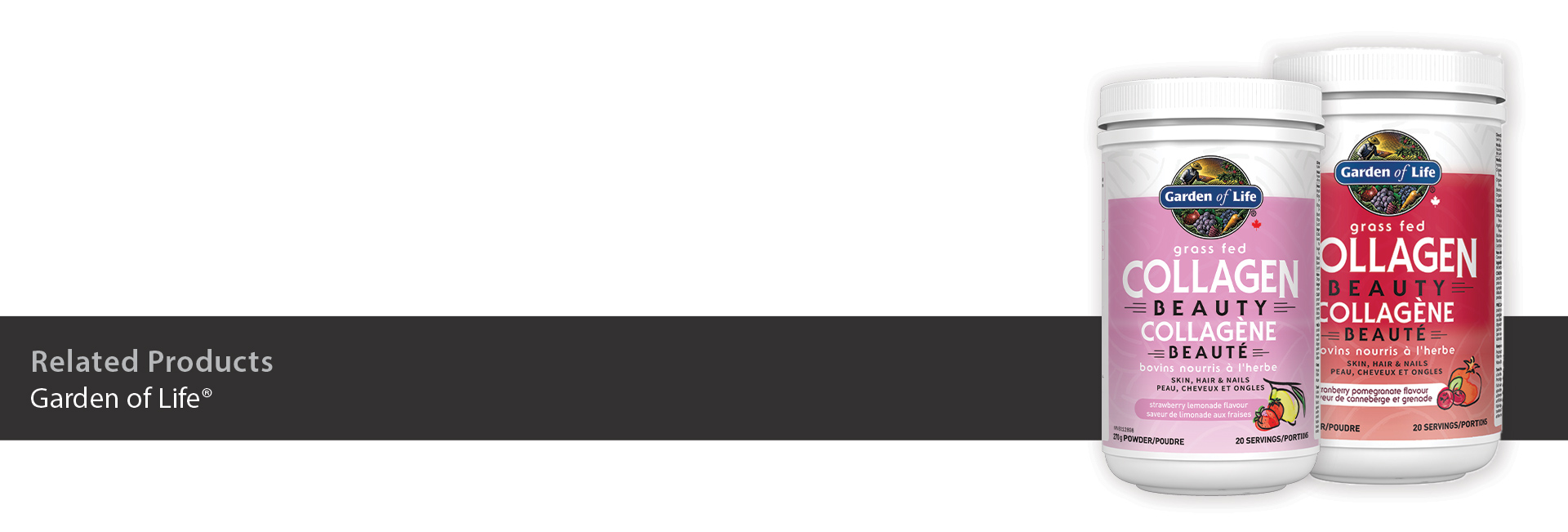What to Look for in a Collagen Supplement
Collagen has become a highly talked about supplement with its many skin, nail, hair, joint and gut benefits! There are several varieties out there to choose from and it can be overwhelming to not only know which will suit you and your health goals best, but which one is the best quality and best value.
First things first – what is collagen?
Collagen is the most abundant protein in our body and is often described as the glue that holds everything together. It gives structure to important tissues such as the skin, muscles, bone, hair, tendons, and cartilage. As we age, the body’s ability to make collagen diminishes significantly, beginning around age 30, so collagen supplementation can be used to benefit skin elasticity, help strengthen nails and hair and improve joint health and mobility.
Pure peptides are the most efficient collagen sources for your body to process and benefit from. You could regularly eat meat or drink bone broth and still not experience the same bioavailability and optimal absorption as you would via hydrolyzed collagen peptides.
What should you look for in a collagen supplement?
1. Quality
What does it mean to get a “good quality” collagen supplement? To understand quality would mean to look for a brand’s transparency in sourcing. Where is the collagen sourced and how was the source housed, fed and treated?
Most collagen supplements are sourced from bovine, chicken or fish and these animals can be raised in many ways, some healthier than others. When a brand provides transparency in how they source their ingredients (animals or plants), it helps us to get an understanding of the quality of product we are looking at.
Garden of Life’s Grass Fed Collagen Powders are sourced from German cows, raised and originating in the European Union (EU) on smalls farm with smaller herds for easier traceability. Why is this important? The EU has strict animal welfare standards in place, which help to control the quality of life, food and treatment animals receives. Garden of Life worked hard to find the cleanest source of collagen available, where healthy cattle roam free and are never treated with antibiotics and hormones.
2. Certifications
Having third-party certifications on a label is a trustworthy way for brands to confirm and guarantee the quality of their product. Key ones to note are: IGEN and Paleo.
Garden of Life’s entire collagen range is third-party certified Paleo-Friendly, which requires that herbivores must be 100% grass-fed, forage-fed and pastured. Although we know that there are no GMOs used for our cattle or their pastures, we needed third party verification to meet our own standards. That’s why our collagen line is also tested by IGEN – the International Genetically Modified Organism Evaluation and Notification Program. IGEN is a third-party certification program developed to test for the presence of GMOs.
In addition to Paleo-Friendly and IGEN Certifications, our Collagen line is Certified Keto and NSF Gluten Free.
3. Superior Ingredients
Depending on what kind of collagen supplement you are looking for, you might prefer a plain, unflavoured product that is just pure collagen peptides. If you’re looking for a collagen supplement that has some added nutrients for further targeted benefits, take note of these additional ingredients and their quality as well!
Garden of Life’s Grass Fed Collagen Beauty combines non-GMO hydrolyzed collagen peptides with Certified Organic and Non-GMO Project Verified plant-derived biotin (from Organic Sesbania), silica (from Organic Bamboo) and vitamin C (from Organic Amla Berry) to help maintain radiant hair, skin and nails.
Our Multi-Sourced Collagen Turmeric has collagen peptides from both bovine and chicken cartilage sources plus added Certified Organic and Non-GMO Project Verified Fermented Turmeric to specifically target improvement of joint health and mobility.
